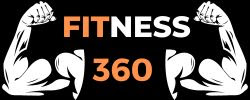Creatine: The Secret Weapon for Building Muscle and Boosting Endurance
If you're looking to take your workouts to the next level, you may have heard of creatine. This natural compound has been shown to help increase muscle mass and improve athletic performance. But what is creatine, and how does it work? In this article, we'll explore the science behind creatine, its benefits and potential drawbacks, and how to use it effectively to achieve your fitness goals.
Table of Contents
What is Creatine?
How Does Creatine Work?
The Benefits of Creatine
The Drawbacks of Creatine
How to Use Creatine Effectively
Creatine and Exercise Performance
Creatine and Muscle Growth
Creatine and Recovery
Creatine and Brain Health
Creatine and Aging
Creatine Dosage and Timing
Creatine Loading Phase
Creatine Cycling
How to Choose the Best Creatine Supplement
Creatine Safety
Conclusion
FAQs
1. What is Creatine?
Creatine is a natural compound found in the body, primarily in muscle tissue. It's made up of generally three amino acids which are arginine, glycine, and methionine. The body can also obtain creatine from dietary sources, such as meat and fish.
2. How Does Creatine Work?
Creatine works by increasing the amount of creatine phosphate stored in muscle tissue. This compound serves as a quick source of energy during high-intensity exercise, such as weightlifting or sprinting. By increasing the amount of creatine phosphate available, creatine may help delay fatigue and improve athletic performance.
3. The Benefits of Creatine
Numerous studies have shown that creatine supplementation can have a range of benefits, including:
Increased muscle mass and strength: Creatine may help increase muscle size and improve strength, especially when combined with resistance training.
Creatine supplementation has been demonstrated to enhance exercise performance in activities that require high intensity, such as weight training, sprinting, and jumping.
Enhanced recovery: Creatine may help reduce muscle damage and soreness after exercise, allowing for faster recovery.
Neuroprotective effects: Creatine may have neuroprotective effects and may help improve cognitive function in older adults.
Anti-aging effects: Creatine may help combat age-related muscle loss and other age-related changes in the body.
4. The Drawbacks of Creatine
While creatine is generally considered safe, there are some potential drawbacks to consider, including:
Water retention: Creatine can cause the body to retain water, which may lead to temporary weight gain.
Digestive issues: Some people may experience digestive issues, such as bloating or diarrhoea, when taking creatine.
Kidney damage: There is some concern that long-term use of creatine may lead to kidney damage, although there is little evidence to support this claim.
5. How to Use Creatine Effectively
To get the most out of creatine supplementation, it's important to use it effectively. Here are some of the useful tips to keep in mind:
Choose a high-quality creatine supplement: Look for a creatine monohydrate supplement that is third-party tested and free of contaminants.
Use the correct dosage: Most research has used a dosage of 3-5 grams of creatine per day. More is not necessarily better, and higher dosages may increase the risk of side effects.
Timing is key when taking creatine. While it can be consumed at any point during the day, some individuals opt to supplement with it pre- or post-workout
Stay hydrated
6. Creatine and Exercise Performance
Creatine has been extensively studied for its positive effects on exercise and performance. Research has consistently shown that creatine can improve performance in high-intensity activities, such as weightlifting, sprinting, and jumping.
One study found that creatine supplementation improved the number of reps performed during a bench press exercise by 43%. Another study found that creatine improved sprint performance in soccer players.
7. Creatine and Muscle Growth
Incorporating creatine into a resistance training regimen has demonstrated the ability to augment both muscle mass and power, according to research.
One study found that creatine supplementation led to a 6% increase in muscle mass in just 4 weeks. Another study found that creatine increased strength in the squat and bench press exercises by 20-25%.
8. Creatine and Recovery
Creatine may also help enhance recovery after exercise. One study found that creatine supplementation reduced muscle damage and soreness after a high-intensity workout.
Another study found that creatine improve recovery in athletes performing multiple bouts of high-intensity exercise.
9. Creatine and Brain Health
Research has also shown that creatine may have neuroprotective effects and may help improve cognitive function in older adults.
One study found that creatine supplementation improved memory and intelligence in older adults. Another study found that creatine supplementation improved cognitive performance in individuals with traumatic brain injury.
10. Creatine and Aging
Creatine may also have anti-aging effects. Research has shown that creatine can help combat age-related muscle loss and other age-related changes in the body.
One study found that creatine supplementation increased muscle strength and function in older adults. Another study found that creatine improved bone density in older women.
11. Creatine Dosage and Timing
To get the most out of creatine supplementation, it's important to use the correct dosage and timing.
Most research has used a dosage of 3-5 grams of creatine per day. More is not necessarily better, and higher dosages may increase the risk of side effects.
There is flexibility in when to consume creatine, with the option to take it at any point in the day, although some individuals lean towards taking it prior to or following a workout.
12. Creatine Loading Phase
Some people choose to use a creatine loading phase to quickly saturate their muscles with creatine. During a loading phase, a higher dosage of creatine is taken for the first 5-7 days of supplementation.
While a loading phase can help increase muscle creatine stores more quickly, it's not necessary for everyone. Many people choose to skip the loading phase and simply start with a maintenance dosage of 3-5 grams per day.
13. Creatine Cycling
Some people also choose to cycle their creatine supplementation, taking it for a certain period of time and then taking a break.
While there is no clear evidence to support creatine cycling, some people believe it may help prevent the body from becoming desensitised to creatine over time.
14. How to Choose the Best Creatine Supplement
When choosing a creatine supplement, it's important to look for a high-quality product that is third-party tested and free of contaminants.
Creatine monohydrate is the most well-studied form of creatine and is generally considered the best option. Other forms of creatine, such as creatine ethyl ester or creatine hydrochloride, have not been shown to be more effective than creatine monohydrate.
15. Creatine Safety
Following proper usage instructions, Creatine is generally considered to be a safe supplement for the vast majority of individuals.
However, some people may experience side effects, such as digestive issues or water retention. There is also some concern that long-term use of creatine may lead to kidney damage, but there is limited evidence to support this claim.
It's important to consult with a healthcare professional before starting a creatine supplementation regimen, especially if you have any pre-existing medical conditions or are taking any medications.
Conclusion
Creatine is a powerful supplement that can help improve exercise performance, increase muscle size and strength, enhance recovery, and potentially improve brain health and combat aging.
When used properly, creatine is generally considered safe and effective. To get the most out of creatine supplementation, it's important to use the correct dosage and timing and to choose a high-quality product.
If you're looking to take your fitness to the next level, consider adding creatine to your supplement regimen.
FAQs
1.Is creatine only for bodybuilders?
No, creatine can benefit anyone looking to improve their exercise performance, regardless of their fitness level.
2.Can creatine cause weight gain?
Creatine can cause water retention, which may result in temporary weight gain. However, this is not the same as gaining fat on the body.
3.Do I really need to do a loading phase with creatine?
A loading phase is not necessary for everyone, and many people choose to simply start with a maintenance dosage of 3-5 grams per day.
4.Can creatine be harmful to my kidneys?
While there is limited evidence to support this claim, it's important to consult with a healthcare professional before starting a creatine supplementation regimen, especially if you have any pre-existing medical conditions.
5.What is the typical duration for observing outcomes from the consumption of creatine supplements?
Results from creatine supplementation can vary depending on individual factors such as exercise routine, diet, and genetics. However, many people may begin to see noticeable improvements in strength, endurance, and muscle size within the first few weeks of starting creatine supplementation.
In conclusion, creatine is a powerful supplement that can provide significant benefits for those looking to improve their exercise performance, increase muscle size and strength, enhance recovery, and potentially improve brain health and combat aging. While creatine is generally considered safe and effective, it's important to use the correct dosage and timing and to choose a high-quality product. By incorporating creatine into your supplement regimen and following a well-rounded exercise and nutrition plan, you can take your fitness to the next level.

